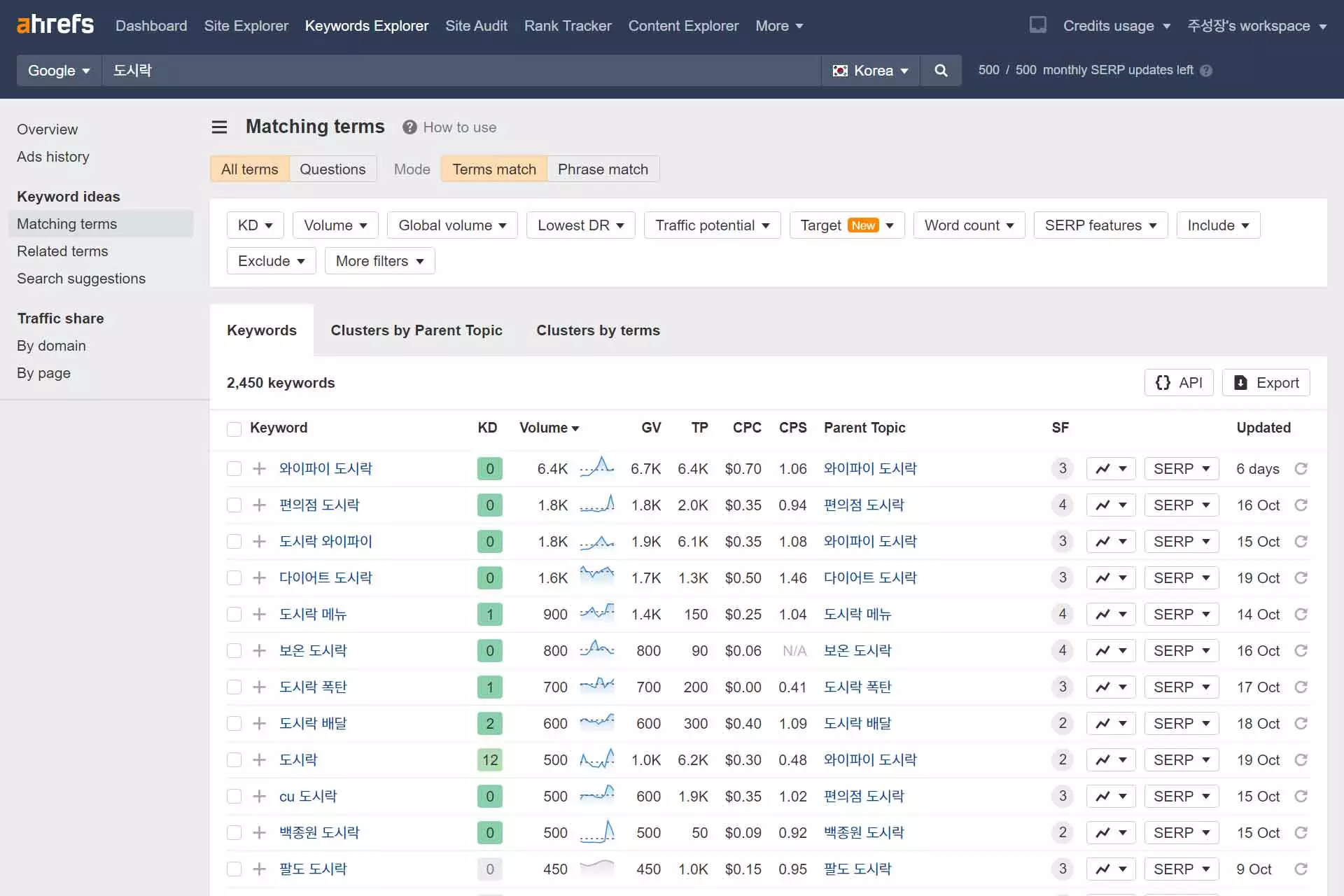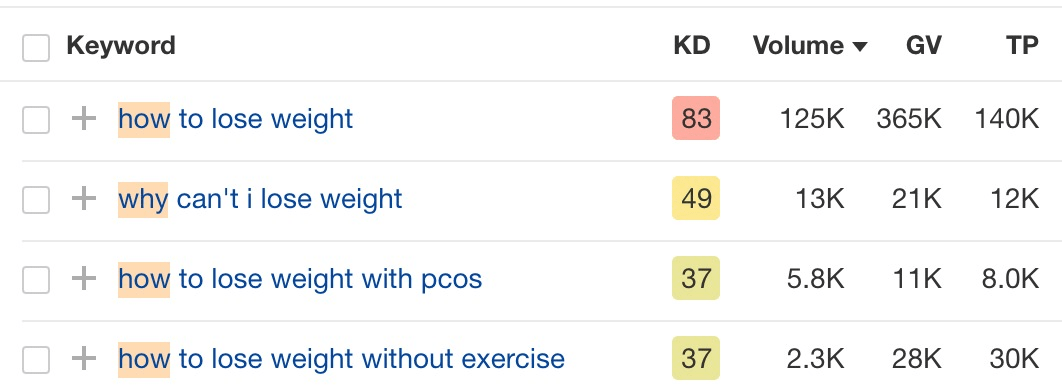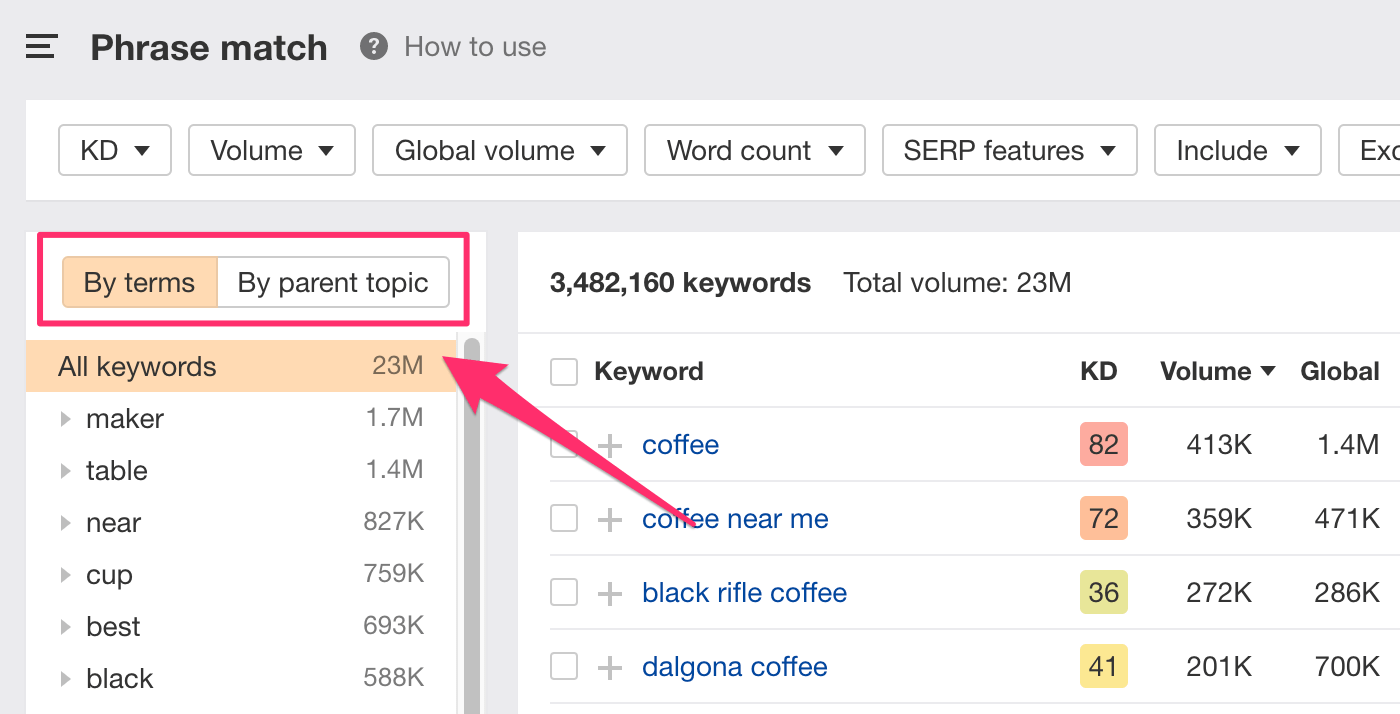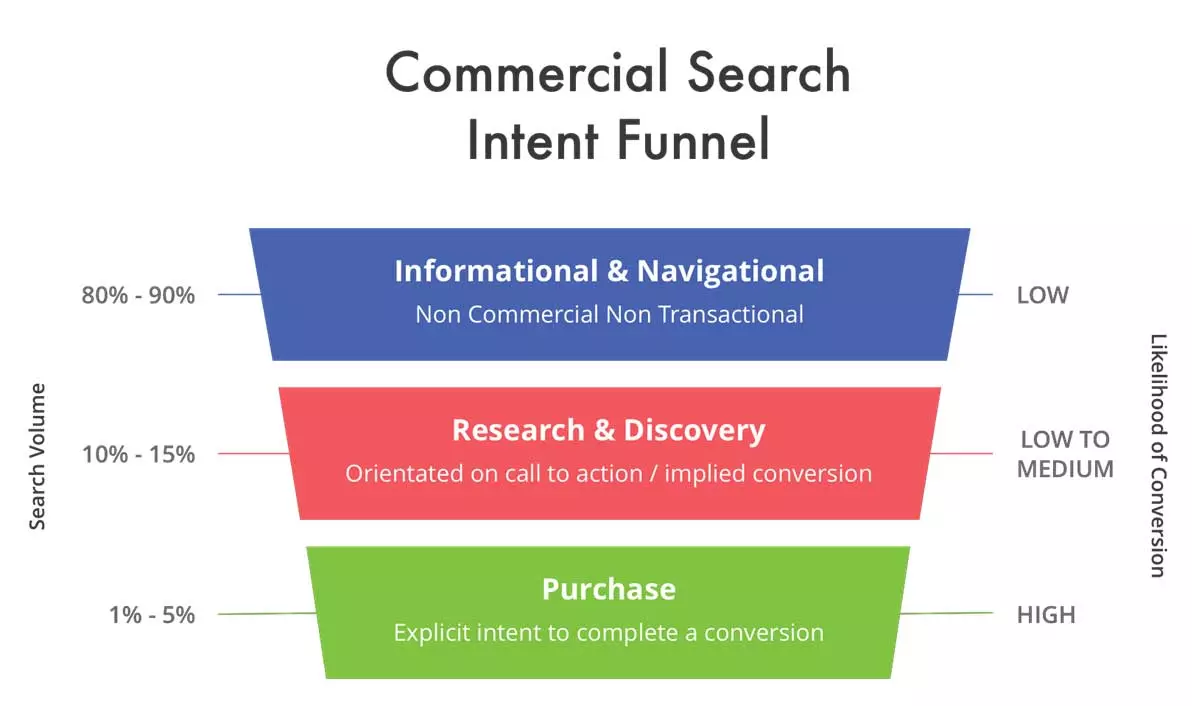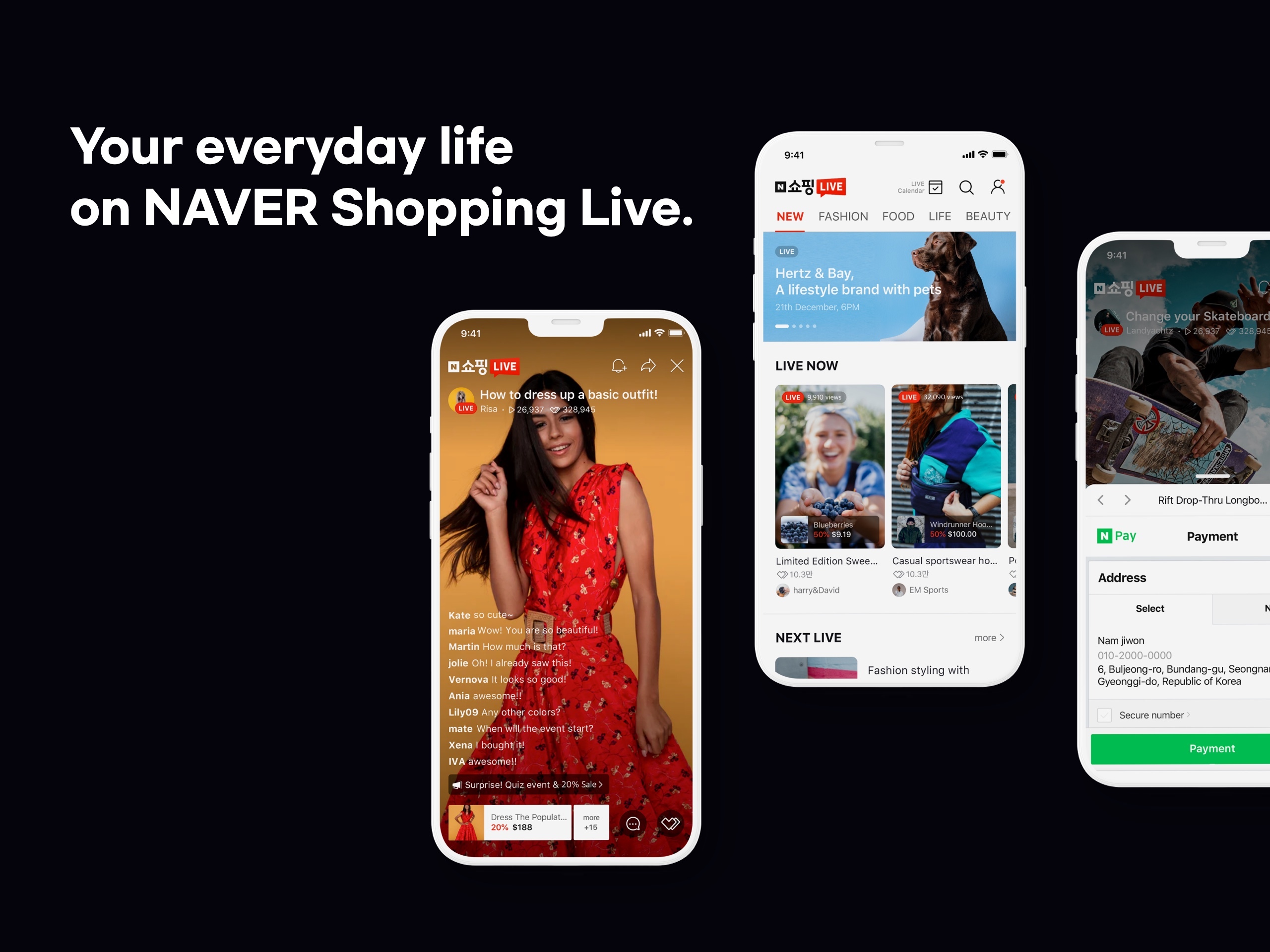Marketing is often considered most challenging when it involves a keyword research process that is “not too competitive” and “close to potential customers.” To effectively secure actual leads, the keyword must not only be less competitive but also penetrate the wants of potential customers.
Here, a keyword refers to specific words or phrases that describe the core content or topic of a website, article, or advertisement.
Search engines cannot recognize all content on a web page, so they first look at keywords. Based on these keywords, they determine the relevance of a page to a user’s search query.
This article introduces the keyword research process and how to utilize it.
What is Keyword Research?
Definition of Keyword Research
Keyword research is a task performed for SEO (Search Engine Optimization). It involves finding the keywords potential customers use to search for our products or services and using this information to build a keyword strategy.
Without keyword research, you might miss popular keywords that target customers are already searching for or end up competing with large industry giants.
No matter how excellent your strategy is, it will be difficult to achieve good results if you face two major setbacks.
The Importance of Keywords

Keywords are crucial in SEO because they help search engines understand the content of a website. Search engines use complex algorithms to determine which websites are relevant to specific search terms. Therefore, creating content related to keywords improves the site’s ranking in search results.
Research shows that people generally do not look beyond the first page of search results. The more a site is exposed to higher search result rankings, the more traffic it will attract.
Keyword Research Process
Getting Started
Before beginning the keyword research process, we need to collect both our brand’s keywords and competitors’ keywords.
These keywords are the most commonly used when people search for our brand or competitors.
You can find these keywords through brainstorming, Google Keyword Planner, checking competitors’ websites and social media accounts.
Examples include:
- [Brand] + @
- [Product Name] + @
- [Competitor Brand] + @
- [Competitor Product Name] + @
Initially, start by gathering suggestive and related keywords based on the brand and competitor keywords you have collected.
Practical Application
Using keyword research tools, you can get recommendations for related search terms based on the keywords you search. These keywords are sorted by volume, and you can understand the search intent behind them. Free tools like Naver’s keyword tool and Google’s Keyword Planner, or paid tools like Ahrefs and Semrush, can be used.
By analyzing search queries from users searching for specific keywords, brands, or product names, you can gain insights into search intent.
How to Use the Search Suggestions Report
Informational queries are used by search users to gain more knowledge about a topic and often include words like “how,” “what,” “why,” “tips,” and “ideas.” Utilizing these informational queries with broad target keywords helps better understand user intent.
Brand Keywords
The second step is to collect non-brand keywords that do not include the brand.
For example, collect category keywords like “functional cosmetics,” “phones with good camera performance,” “gift recommendations for people in their 20s,” and “restaurants for first meetings.”
Most of the time in keyword research is spent on this task because it involves uncovering actual user wants.
This process helps marketers understand what factors consumers consider important in their purchase decisions.
To find search engine and related keywords, you can use keyword research tools like Google Keyword Planner, Ahrefs, and SEMrush. You can also use Google suggestions found at the bottom of search results pages.
Grouping and Organizing
After collecting a list of keywords, group them into categories. This helps understand the various types of keywords people use to search for information about brands, products, and industries.
You can group keywords based on the following criteria:
- Search Intent: Informational Keywords, Transactional Keywords, Navigational Keywords
- Topic: Product Keywords, Category Keywords, Industry Keywords
- Competition: Highly Competitive Keywords, Medium Competition Keywords, Low Competition Keywords
After organizing the keywords, analyze them to identify which ones are most important for your business. Check monthly search volume, CPC information, ad competition, top URLs in search results, and format information for each keyword or topic.
Based on the analysis, prioritize keywords and focus on the ones that are most important for your business. You can create different keyword lists for each marketing campaign, such as for SEO, PPC, or social media campaigns.
Campaign Optimization

Marketers must decide whether to address each topic through content and SEO or to enter the competition with search ads. This process is called campaign optimization.
If the content on your operating website is already well-exposed in search results, there may be no need to run ads for that keyword.
Conversely, if you need to start marketing for keywords with high volume and conversion rates, and if your content isn’t appearing favorably in search results, you should consider using search ads to compensate for the lack of organic traffic.
This highlights why content marketing and performance marketing are inseparable.
Gaining Target Insights Based on Keyword Research
Now that you understand the keyword research method, let’s explore how to gain consumer insights based on it.
Through the keyword research process, we can generate lists of search keywords used by consumers in their purchase decision-making process. Additionally, we can check monthly search volumes, gender ratios, age distributions, and ad competition.
However, this direct information is not all the insights keyword research can reveal.
Combining Keywords
Search keywords consisting of two or more words often include target keywords referring to the products or services a consumer intends to purchase.
Simultaneously, margin keywords can be used to infer the searcher’s interests, goals, and circumstances.
By grouping similar meaning keywords based on these margin keywords, we can understand what consumers are focusing on within an industry.
By reverse analyzing search results for keywords in the main interest topic groups, we can understand what purpose consumers have when searching for that topic.
This leads to understanding consumer search intent, known as Keyword Intent.
Understanding Intent Analysis in SEO
For example, if someone searches for “building AI models,” it likely indicates a search for professional services. However, if they simply search for “artificial intelligence,” they may only be seeking information about AI.
Google aims to answer user queries as efficiently as possible, so it’s likely to rank content that aligns with user intent higher.
By analyzing the top URLs in search results for specific topic group keywords, you can determine which media touchpoints influence consumers the most. You can also gain insights into the content formats consumers prefer.
At this stage, keyword research expands into intent analysis.
Conclusion
In conclusion, through the keyword research process, marketers can gather:
- Lists of consumer search keywords
- Monthly search volume for a year
- Consumer interest topics and intent
- Media touchpoint information for consumers
- Sequence information among search keywords
Marketers can use this data to predict and suggest where to provide content and how to approach consumers with advertising methods.
This allows for the creation of more specific content and campaign strategies.
Understanding the contexts and situations in which consumers search for specific keywords is crucial for business success. Marketers need to connect with consumers through optimal media mixes, delivering content that resonates with them.
If marketers can accurately understand and empathize with personas’ lives and plan content accordingly, they will be able to successfully run campaigns.
This is why Growth Marketing Agency invests so much time in precise target analysis. We focus on analyzing search intent through expanded keyword research processes to understand customer interests. This aims to identify the Contextual Consumer Persona, providing a clearer view of the consumer’s buying journey.
